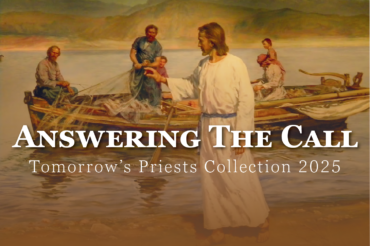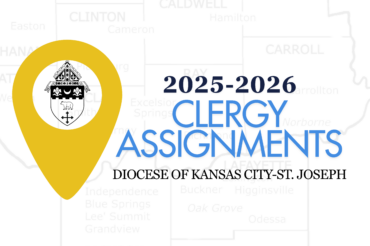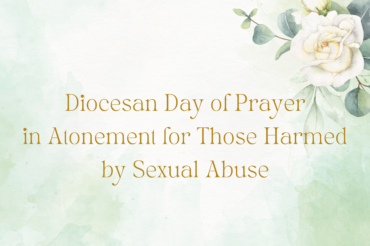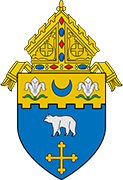Should We Protect All Children?
“A just law is a man-made code that squares with the moral law or the law of God. An unjust law is a code that is out of harmony with the moral law. … Any law that uplifts human personality is just. Any law that degrades human personality is unjust.”—Martin Luther King, Jr. (from his Letter from Birmingham City Jail)
Should we protect all children? The answer to this question should seem obvious, at least to the readers of The Catholic Key. Yes, we should strive to protect all children. This is the duty of both family, Church and society. Children are entrusted to us by God and, as it is often said, they are our future; which means they are a sign that we have hope. They are also innocent and among the most vulnerable among the human family.
So, why even ask? The question is rhetorical and occurred to me this week with the convergence of three moments that occur each year at this time on our calendar: the annual report from our diocesan Office of Child and Youth Protection (OCYP), the March for Life, which marks the infamous Roe v. Wade decision of the U.S. Supreme Court on January 22, 1973, legalizing abortion-on-demand in all 50 states, and the commemoration of Dr. Martin Luther King, Jr., America’s great champion for human and civil rights.
First, a few words on the work of our OCYP and many others in our diocese over the past year. The news of the past summer over the Pennsylvania Grand Jury Report and the Theodore McCarrick scandal renewed both anger and concern over how the Catholic Church is addressing all the issues which impact the protection of children. In our own diocese, these legitimate concerns revealed to me that many are not aware of what our diocese has done, and is doing, to make sure our parishes and schools are safe for children, and that a healthy culture of safety is promoted which can be extended even beyond the Church. Through mandated background checks, diocesan code of conduct, safe environment training for children and adults, mandated reporter training, and on-going updating, our network of Parish and School Safe Environment Coordinators (SECs) and VIRTUS® Facilitators, are working to make our diocese into what is known as a High Reliability Organization (HRO) when it comes to child safety. This work is never fully complete, and no organization can always prevent someone from a bad act, but we can make bad actions as difficult as possible and respond quickly and responsibly if something happens.
I also wish to mention the dedicated work of our diocesan team at the Catholic Center which oversees and carries out so much of this important work for all of us: Carrie Cooper, the Director of the OCYP, Sherry Huffman, who Coordinates Safe Environment training across the diocese, and Kathleen Chastain, the Diocesan Victim Assistance Coordinator. And, while she is not a member of the diocesan staff but an independent contractor, gratitude is also due to Jenifer Valenti, who serves in the role of independent Ombudsman. Supporting me in my own oversight responsibility, I am also grateful to our Independent Review Board, made up primarily of laity with varying expertise, and which reviews all cases of child sexual abuse allegations and makes recommendations to me following their investigation. As you can see from the annual report, this is a large and vital part of our ministry as a Church and has made a great impact for the good. If you have been active in your parish or school as a volunteer or an employee, you have had firsthand experience with what we are doing together as a diocesan family!
Second, I want to mention the reason for my first question above. Realizing that children are precious in our own eyes and the eyes of God, and that all children deserve love and safety, how is it possible that our law allows for the willful killing of millions of children every year though abortion? This defies both faith and reason. In fact, it is through the use of reason bolstered by science that the tide is turning on this issue. Basic science and the use of sonogram technology make the humanity of the unborn child unavoidable. Recently, a friend sent me a sonogram picture of a child in the womb at six months, and it shocked me. The high resolution was so crisp that it was a challenge to tell whether it was a pre-natal sonogram or a photograph of a new-born—the features of the baby’s face were that clear.
I recognize that many women (and men) seek abortions because they feel they have no other choice. Later, many bitterly regret what they have done. I wish to assure anyone in such a predicament that God is rich in mercy. Know that our Church wants to help these people find healing, reconciliation, and peace. Our Respect Life Office stands ready to assist anybody wounded by abortion. My gratitude goes out to Bill Francis and Teresa Hoeppner who lead our efforts in this ministry. (Visit the Project Rachel site here)
Despite the compelling evidence provided by modern medical science as well as the unchanging teaching of our faith, there are those who still advocate for a “right” to abortion. I realize many are deceived or are sincerely misguided in their convictions. But I also feel compelled to name some of the darker motives that undergird this phenomenon: greed, bigotry, and lust for power.
First, as they say, “follow the money.” Abortion is now a big business. For example, Planned Parenthood is a multi-million-dollar organization which is built on the money of providing abortion, including the funding they receive from taxpayers through the Federal Government. The other services they offer and try to highlight serve to cloak their true “bread and butter”: abortion. Some people will do anything for money, including killing others. As long as killing by abortion is legal, there will be those who will do it for the money.
Second, there is bigotry. If one looks at figures such as Margaret Sanger and the other elites that first promoted and pioneered the abortion movement, one will find that they were motivated in large part by a eugenics-based desire to reduce the populations of people for whom, they thought, society would be better off if they were never born. This included certain racial groups, the poor, and those with genetic traits such as Down Syndrome. This bigotry can still be seen today in the simple fact that most abortion mills are located near poor minority neighborhoods. It is also why in parts of the developed world there are now no young people with Down Syndrome or other genetic conditions.
Finally, there is power. Abortion is about giving some persons the power over the life of other persons. It is a form of idolatry, in which one claims the right to decide that another person will live or die. Unfortunately, the motives of the abortion industry are largely disguised by propaganda.
Tragically, the child is not the only victim. The woman in crisis is the one preyed upon and often convinced that she has few other options, left to carry the guilt and wounds of abortion afterwards. It is here that followers of Jesus have made a huge impact for good; helping wounded women and families to find healing and hope. The love of Jesus is stronger, and this love is manifest in the people, centers, healing programs, and other ministries that are there for women who are victims of the abortion culture.
While it has now been 46 years since the Roe decision, the good news is that this can change in America. A bad law can be revoked if enough good people insist on it—Dr. King’s legacy is a case in point! Recent polls and a perceived shift in the Supreme Court give hope that this can happen again. But there is no room for complacency. Disciples of Jesus must pray, fast, and act in the public square to see change, so that all children will be protected.
+ Most Reverend James V. Johnston, Jr.
Bishop of Kansas City-St. Joseph
Catholic Key, January 25, 2019 issue
Pope Francis’ January Prayer Intention
That young people, especially in Latin America, follow the example of Mary and respond to the call of the Lord to communicate the joy of the Gospel to the world.Bishop Johnston’s January Prayer Intention
For the homeless and those who have no immediate family to help them.





